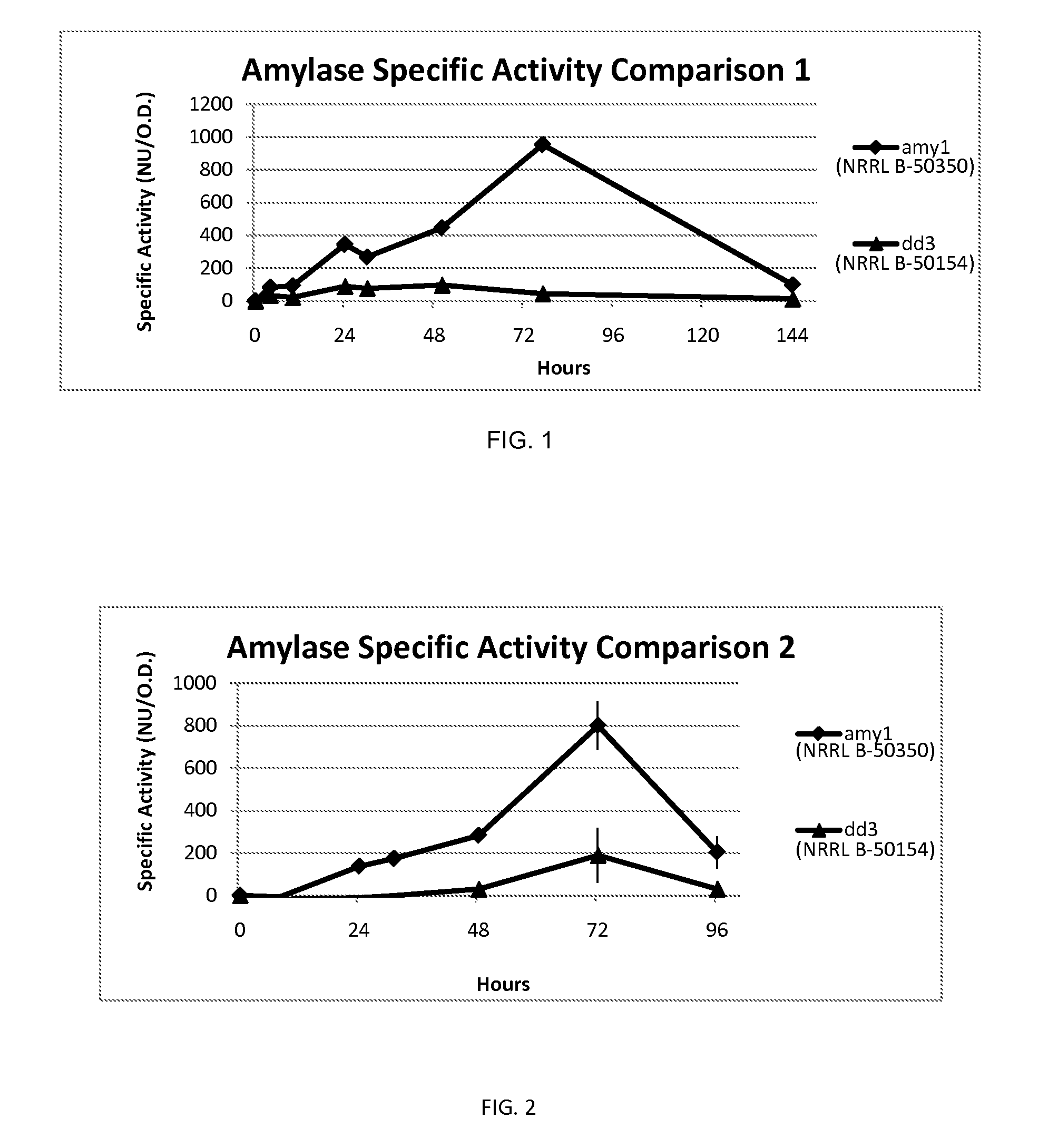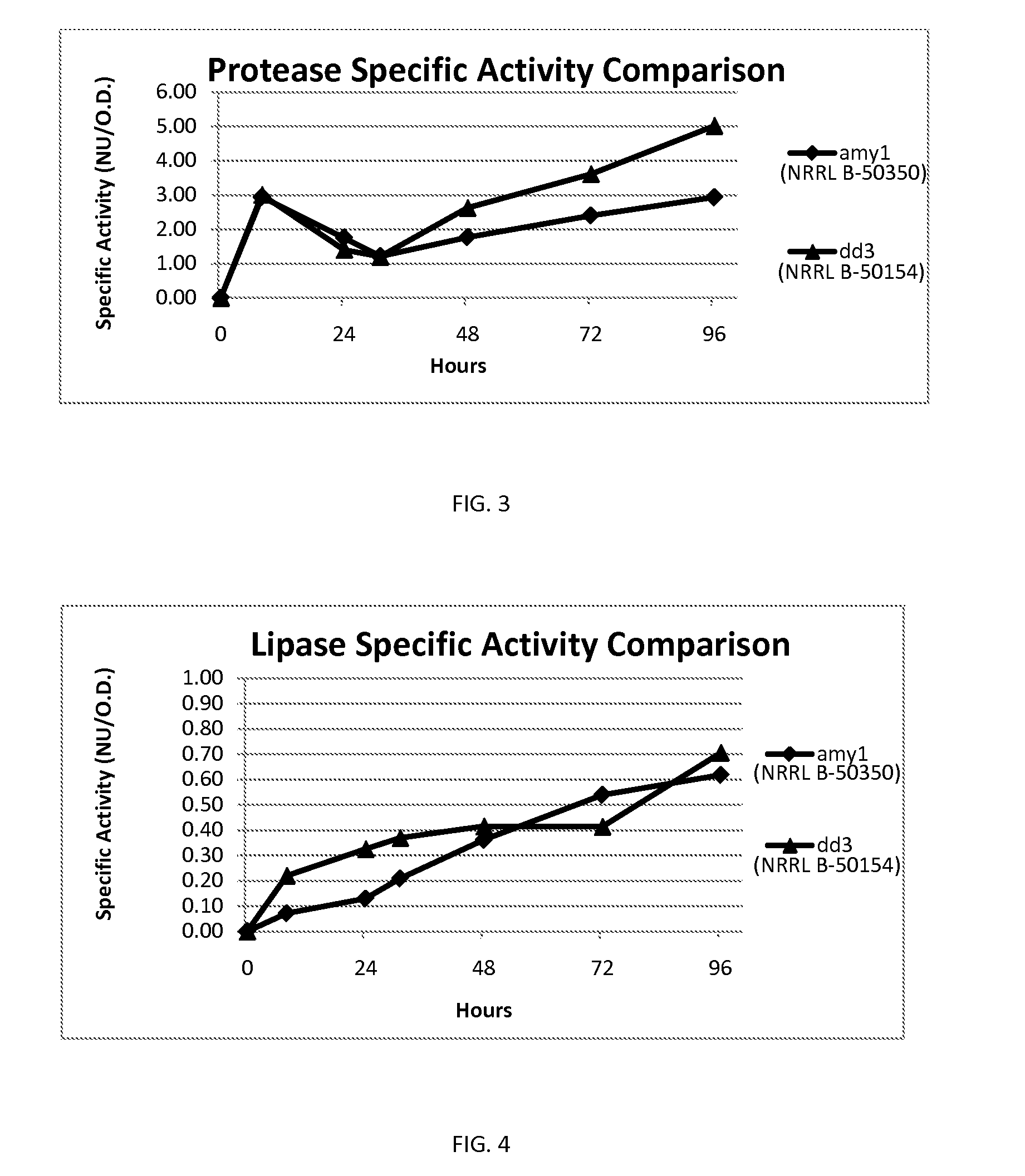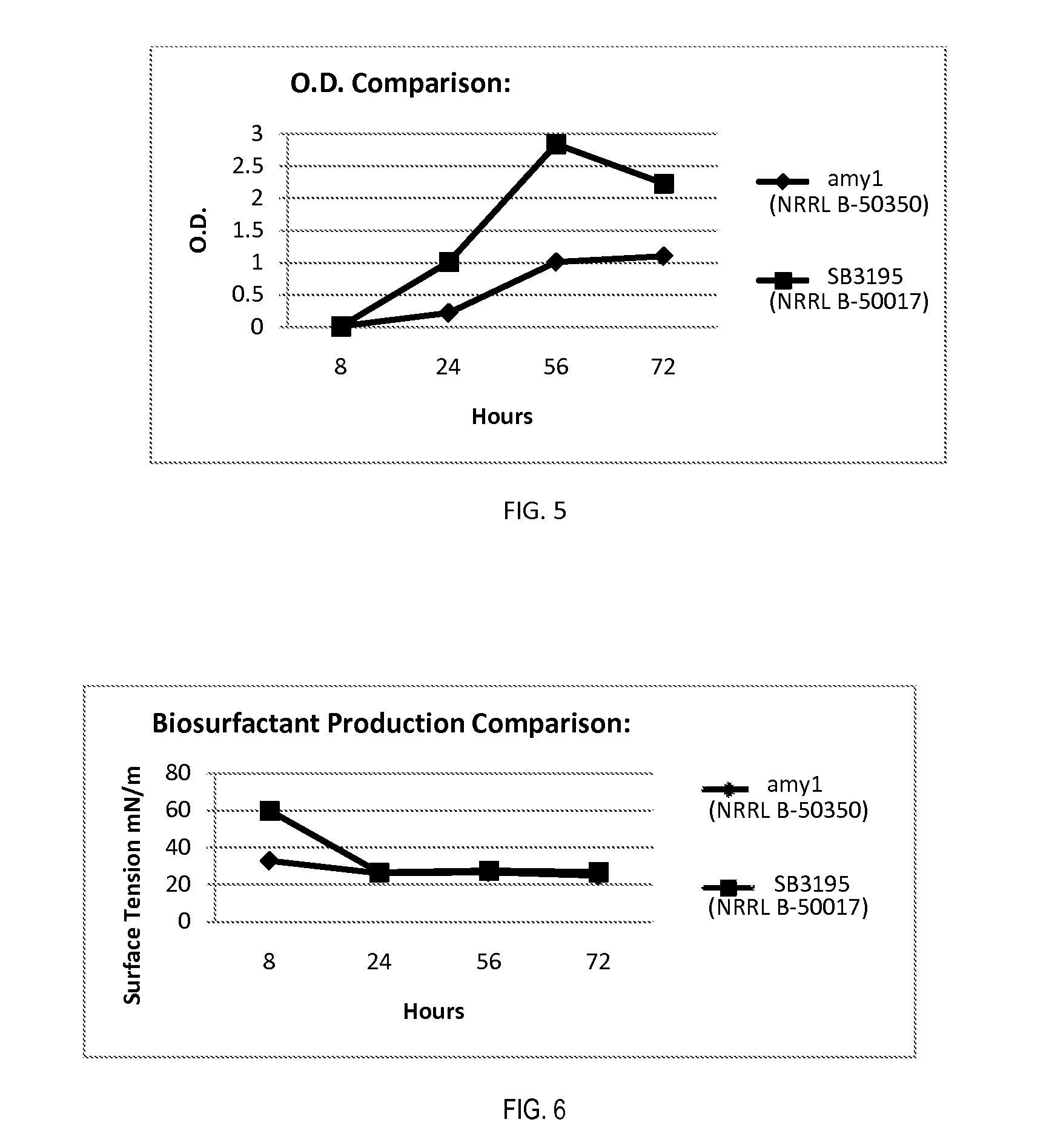Bacillus amyloliquefaciens Strain
a technology of amyloliquefaciens and bacteria, applied in the field of amyloliquefaciens bacteria, can solve the problems of negating the ability to provide strains for practical applications, complete loss of culture, etc., and achieve the effects of preventing, alleviating or eliminating undesirable conditions, and improving plant seed quality
- Summary
- Abstract
- Description
- Claims
- Application Information
AI Technical Summary
Benefits of technology
Problems solved by technology
Method used
Image
Examples
example 1
Materials & Methods
[0091]Bacillus amyloliquefaciens strain NRRL B-50350 (“Strain SB3778”) was isolated from a research lab area. Studies were conducted including: a bacterial identification study; DNA fingerprint study; bio-surfactant activity study; antifungal activity study; stress tolerance study; proteinase activity study; and gene clone for amylase.
Isolation and Identification of Bacillus amyloliquefaciens Strain NRRL B-50350
[0092]A 1600 base full length 16s DNA was obtained from Bacillus amyloliquefaciens strain NRRL B-50350 isolate and the sequence was analyzed. The analysis identified the bacterial isolate as Bacillus amyloliquefaciens.
Bacillus amyloliquefaciens Strain NRRL B-50350 has Unique Morphology on SM Plate:
[0093]Bacillus amyloliquefaciens strain NRRL B-50350 was compared with known strains of Bacillus amyloliquefaciens. Specifically, growth and morphology were compared. Bacillus amyloliquefaciens strain NRRL B-50350 was morphologically different from all other Baci...
example 2
Temperature Tolerance
[0114]Method: Bacillus amyloliquefaciens strain NRRL B-50350 and an in-house strain (used as a control for comparison) were inoculated into PCB and grown overnight at each of following temperatures: 35° C., 40° C., 45° C., and 50° C. Tolerance was measured by the presence or absence of growth.
[0115]Results: Growth was visible up to 50° C. for each strain. Accordingly, the strain of the present disclosure is heat tolerant.
example 3
Salinity Tolerance
[0116]Method: Bacillus amyloliquefaciens strain NRRL B-50350 and an in-house strain (used as a control for comparison) were inoculated into bactotryptone (10 g / L) yeast extract (5 g / L) media with the following salt concentrations: 2%, 5%, 7.5%, 10%, and 12.5%. Tolerance was measured by the presence or absence of growth.
[0117]Results: Growth was visible up to 7.5% for Bacillus amyloliquefaciens strain NRRL B-50350 while control displayed growth up to 12.5%.
PUM
| Property | Measurement | Unit |
|---|---|---|
| Composition | aaaaa | aaaaa |
| Concentration | aaaaa | aaaaa |
| Fungicidal properties | aaaaa | aaaaa |
Abstract
Description
Claims
Application Information
 Login to View More
Login to View More - R&D
- Intellectual Property
- Life Sciences
- Materials
- Tech Scout
- Unparalleled Data Quality
- Higher Quality Content
- 60% Fewer Hallucinations
Browse by: Latest US Patents, China's latest patents, Technical Efficacy Thesaurus, Application Domain, Technology Topic, Popular Technical Reports.
© 2025 PatSnap. All rights reserved.Legal|Privacy policy|Modern Slavery Act Transparency Statement|Sitemap|About US| Contact US: help@patsnap.com



